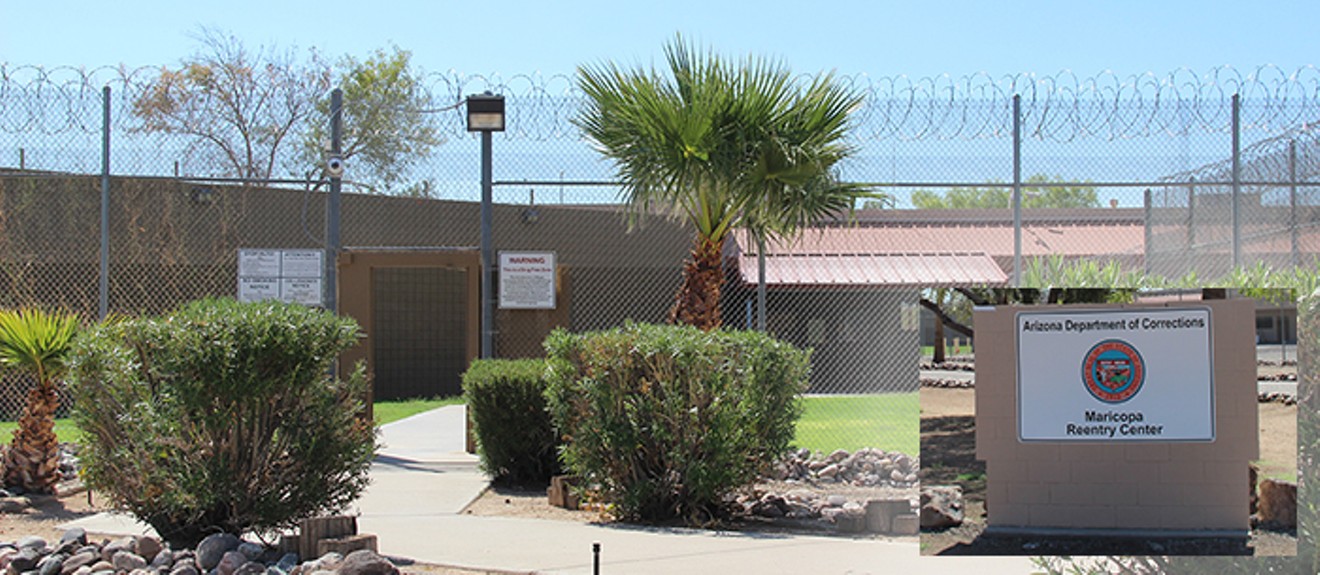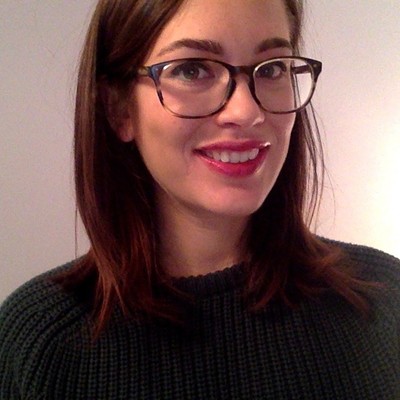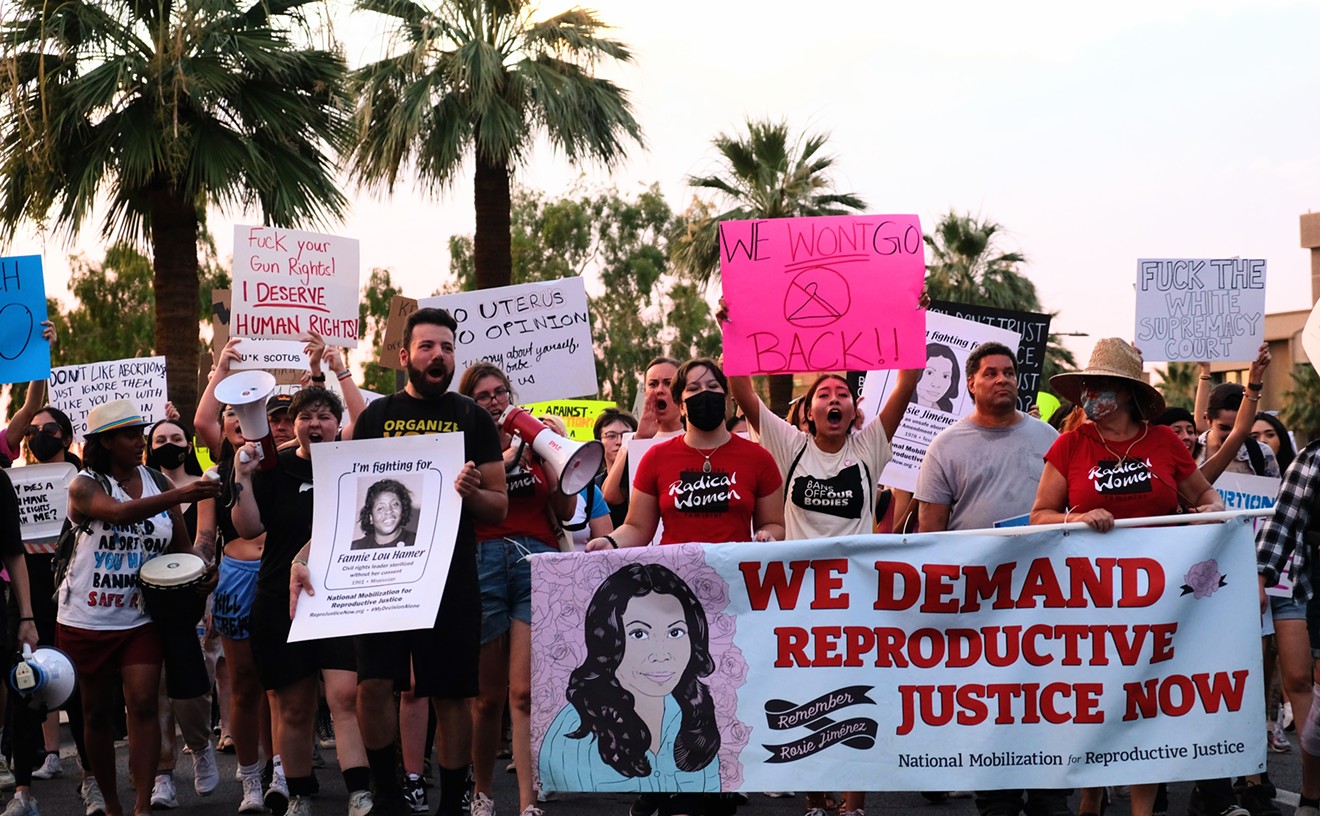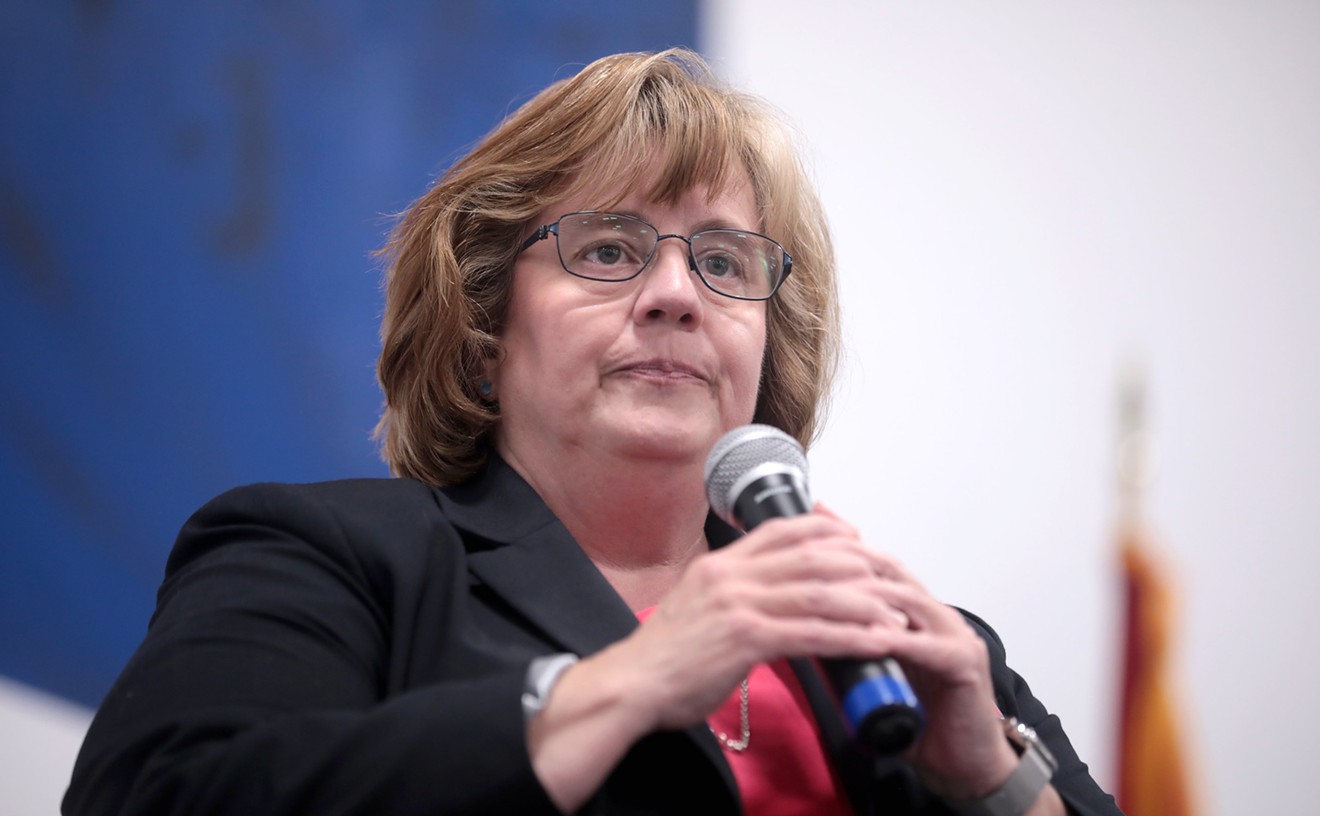They're not entirely in love with Governor Doug Ducey's plan for moving the re-entry center, either. But what's unusual here is that it's community leaders from a low-income, majority-minority community — not white suburbanites — who are being accused of NIMBYism. (The acronym stands for Not In My Backyard.)
Donna Hamm, the director of Middle Ground Prison Reform, called it "a bit disingenuous" for politicians and south Phoenix residents to complain about the facility when, as she pointed out, the neighborhood has been home to county jails and juvenile detention facilities for decades.
"Politicians seem to be willing to mouth the rhetoric about the need to reduce prison populations by reducing recidivism, but I guess it only means if 'it isn't in my neighborhood,'" she wrote in an email.
Some background: The Maricopa Re-entry Center, which opened in north Phoenix near Interstate 17 and Happy Valley Road last year, is intended to provide a second chance for released inmates who have violated the technical terms of their parole.

The Maricopa Re-Entry Center is currently located in north Phoenix, near Happy Valley Road.
Screenshot/Google Maps
Currently, Governor Doug Ducey is exploring the possibility of moving the re-entry center to south Phoenix.
According to Tim Roemer, his policy advisor on public safety, there's vacant space at the Durango Criminal Justice Complex that could be used to expand the program, in a location that's closer to job opportunities in downtown Phoenix.
The area is heavily industrial, with the closest school a little over a mile away.

The Durango Criminal Justice Complex is located to the southwest of downtown Phoenix.
Screenshot/Google Maps
Last week, south Phoenix community leaders and residents held a press conference at the state Capitol, complaining that their neighborhood was being used as a "dumping ground" for a facility that north Phoenix didn't want.
Caroline Isaacs, the program director for the American Friends Service Committee in Arizona, said that she was dismayed by some of the language used to describe former inmates.
"Casting them as the scourge on a community — or some kind of garbage that is being dumped on us — is not constructive," she said. "Those folks come from our community. Throwing them away is really not in the interest of public safety."
Isaacs said that she understands that residents have concerns about safety. But, she argued, south Phoenix has an opportunity to figure out what kinds of resources the community needs — for instance, more addiction treatment services, increased access to jobs, or better public transportation.
"If it feels unsafe now, you can’t blame it on a re-entry center that's not there," she said. "If I lived in this community, I’d be twisting the governor’s arm right now to say, 'You want to put this here? Here’s what we need. We’ll support this if it comes with this investment in our community.'"
Still, she and other advocates for criminal justice reform have their own concerns about Ducey's plans for the re-entry center.
Isaacs said that any focus on re-entry is a step in the right direction. But she questioned the decision to make the re-entry center a residential program, where participants have a curfew and are locked in at night.
It would be more effective — and less expensive — to offer social services on an outpatient basis, she said.
Sue Ellen Allen, the founder of Reinventing Reentry, agreed. "To me, it sounds like it’s just another excuse for a prison," she said.
State officials haven't yet provided an estimate for what moving the re-entry center to south Phoenix would cost. But in Allen's opinion, their money would be better spent on making drug treatment, educational opportunities, and job training more widely available to people who are currently incarcerated.
"My whole belief is that this should be done inside, before they get out," she said.
The Department of Corrections does provide those services, but Allen would like to see them offered on a much larger scale. (A recent study by AFSC-Arizona found that only three percent of state prisoners identified as having "significant substance abuse histories" were receiving drug treatment.)
Also, she noted, classes are often taught by correctional officers, not professional educators.
The best-case scenario, Isaacs said, is that the controversy in south Phoenix leads to a statewide plan for helping all recently released inmates transition back into society.
"Maybe in the meantime, we find a site for this proposed facility, because it’s better than nothing, which is what we have," she said. "But let’s not leave it there. Let’s say, what does the state need in terms of comprehensive re-entry? Because that’s how you do it, not 100 beds at a time."













